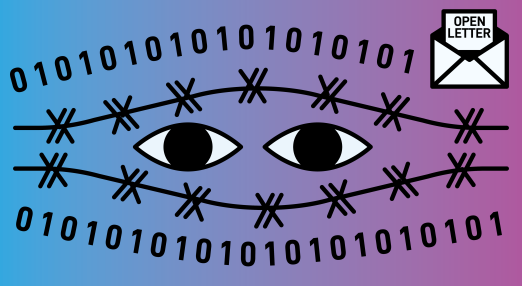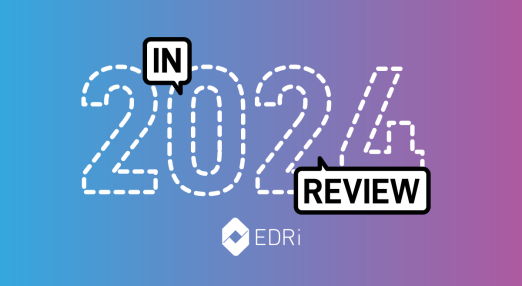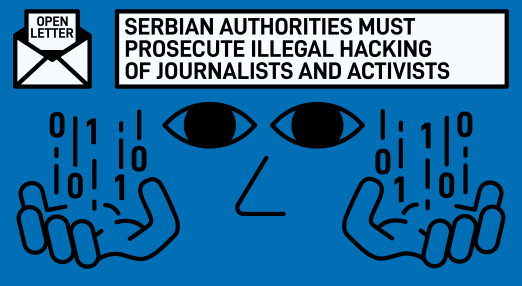GDPR Procedural Regulation: A critical opportunity to strengthen cross-border enforcement
As EU negotiators continue trilogue discussions on the GDPR Procedural Regulation, civil society organisations across Europe are raising the alarm: the proposed reforms risk failing to address the long-standing enforcement challenges that have undermined the GDPR’s effectiveness. In a joint letter, EDRi, Access Now and 34 fellow organisations call on policymakers to prioritise robust, rights-centred enforcement mechanisms that ensure individuals can meaningfully exercise their rights.
Filter resources
-

GDPR Procedural Regulation: A critical opportunity to strengthen cross-border enforcement
As EU negotiators continue trilogue discussions on the GDPR Procedural Regulation, civil society organisations across Europe are raising the alarm: the proposed reforms risk failing to address the long-standing enforcement challenges that have undermined the GDPR’s effectiveness. In a joint letter, EDRi, Access Now and 34 fellow organisations call on policymakers to prioritise robust, rights-centred enforcement mechanisms that ensure individuals can meaningfully exercise their rights.
Read more
-

EDRi-gram, 5 February 2025
What has the EDRis network been up to over the past two weeks? Find out the latest digital rights news in our bi-weekly newsletter. In this edition: Don’t let Big Tech bully the EU, Commission’s AI Act guidelines should center human rights, & more!
Read more
-

Civil Society Demands: European Commission Must Close e-ID Loopholes!
In a coalition of 15 civil society organisations, EDRi member epicenter.works published an open letter demanding that the European Commission close loopholes in the European Digital Identity Wallet. They highlight risks for privacy and transparency in recent eIDAS implementing acts.
Read more
-

Why Ireland is the Achilles heel of the EU’s fightback against Big Tech
The recent controversies surrounding Big Tech moguls Elon Musk and Mark Zuckerberg — who are defying content moderation norms and accusing the EU of censorship — should come as no surprise to those following the tech industry closely. For over a decade, Big Tech has approached the EU's robust data protection framework as little more than a compliance checkbox, rather than a set of binding legal obligations.
Read more
-

EDRi-gram, 22 January 2025
The EDRi-gram is back after the winter break and yes, we missed you too. Before we dive into the new year, we have a review of 2024 for you. From stopping Chat Control to hosting the first-ever Tech and Society Summit, read up on what kept EDRi so busy last year. In this edition, also catch-up with some important developments from the end of 2024 which are bound to pop up again on the digital rights radar soon. The infamous High Level Group Going Dark presented their "insecurity by design agenda". So don’t be surprised if EU politics sees another iteration of flawed proposals on data retention and circumventing encryption. Ugh. Meanwhile, the European Commission presented their proposal for digitalising travel documents. “Didn’t they promise that for the third quarter of 2023,” you say? Indeed, but after the initiative received a devastating amount of negative feedback, it took more than a year for the adjusted EU travel app proposal. We provide an extensive analysis of the (so far) voluntary system for pre-travel controls. For our more masochistically inclined readers, we take a look over to the US and how corporate social media such as Meta and X align with the new administration. Recent changes to content moderation policies empower far-right extremists and expose marginalised and minoritised communities to hate speech.
Read more
-

European Commission guidelines on the AI Act implementation must center human rights and justice
Over 25 civil society organisations and experts actively following the implementation of the Artificial Intelligence (AI) Act are urging the European Commission’s AI Office to ensure that the upcoming Commission guidelines clarify fundamental rights as the central guiding basis to enable meaningful AI Act enforcement. They also note note the various shortcomings of the Commission’s consultation process.
Read more
-

Civil society raises concerns over Europol-Egypt cooperation agreements
41 civil society organisations and experts sound the alarm about negotiations on a working agreement between Europol and Egypt. If signed it would risk legitimising illegal practices used by Egyptian police and pave the way for an exchange for personal data.
Read more
-

EDRi’s 2024 in Review
As we enter 2025, we look back on some of the biggest European digital rights developments, the laws passed, enforcement actions taken, and things to watch out for in the new year and the new EU mandate.
Read more
-

CSA Regulation Document Pool
This document pool contains updates and resources on the EU's proposed 'Regulation laying down rules to prevent and combat child sexual abuse' (CSA Regulation)
Read more
-

Pre-travel controls: Digitalising travel documents
We are responding to a public consultation on the European Commissions’ digitalising travel documents proposal. This proposal promises convenience in travel but could pave the way for biometric mass surveillance and automated discrimination.
Read more
-

Serbian authorities must prosecute illegal hacking of journalists and activists
Today, 19 December, European Digital Rights (EDRi) and 58 organisations urge the European Union’s institutions to take action to stop the Serbian authorities’ illegal use of spyware to target journalists, activists, and members of civil society.
Read more
-

Shedding light: We address the flawed Going Dark Report
The “High Level Group on Access to Data for Effective Law Enforcement”, a.k.a. HLG Going Dark, presented its final report and recommendations for an agenda of maximal access to personal data. In an open letter we warn of the dangers and propose a better policy alternative.
Read more
